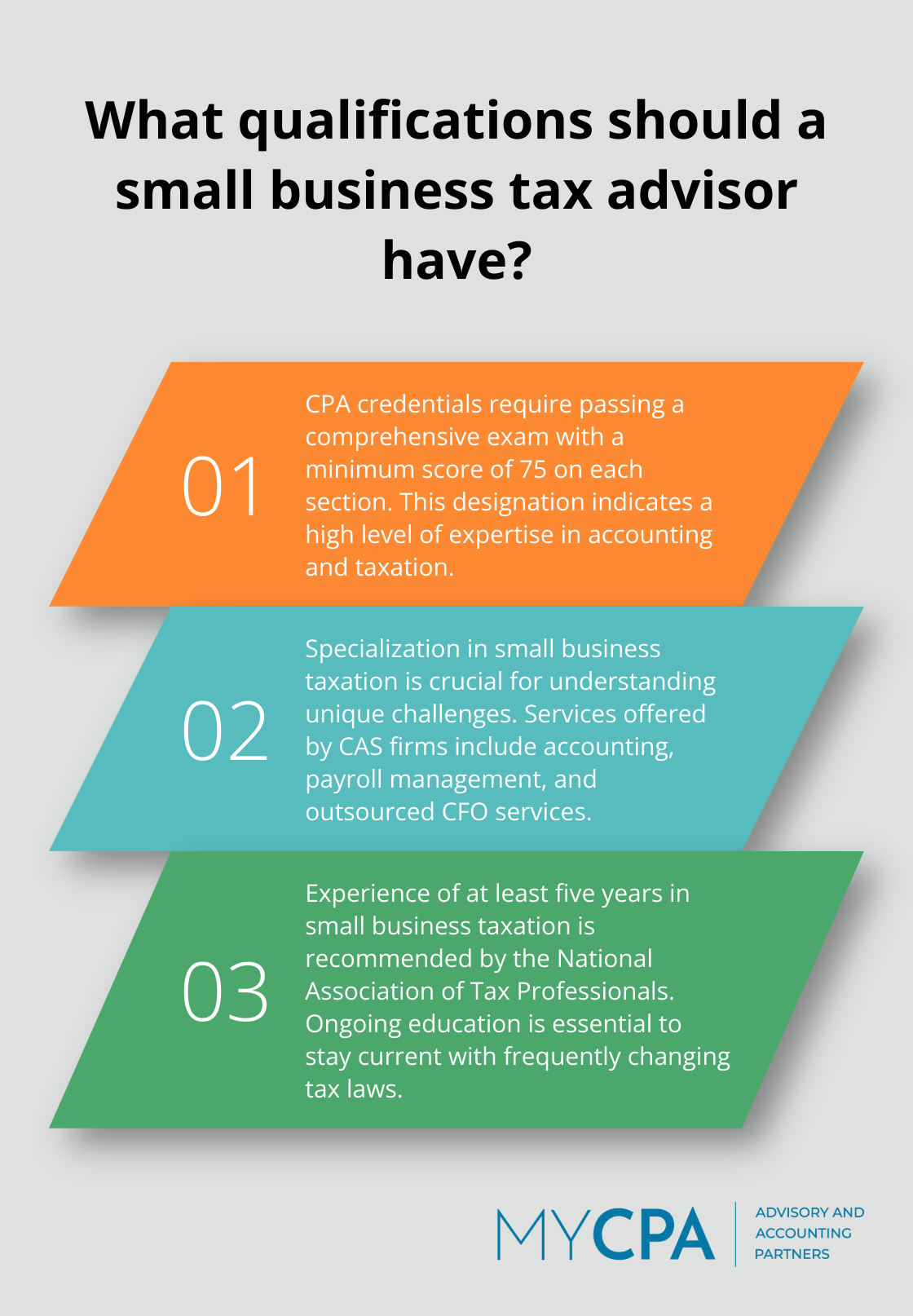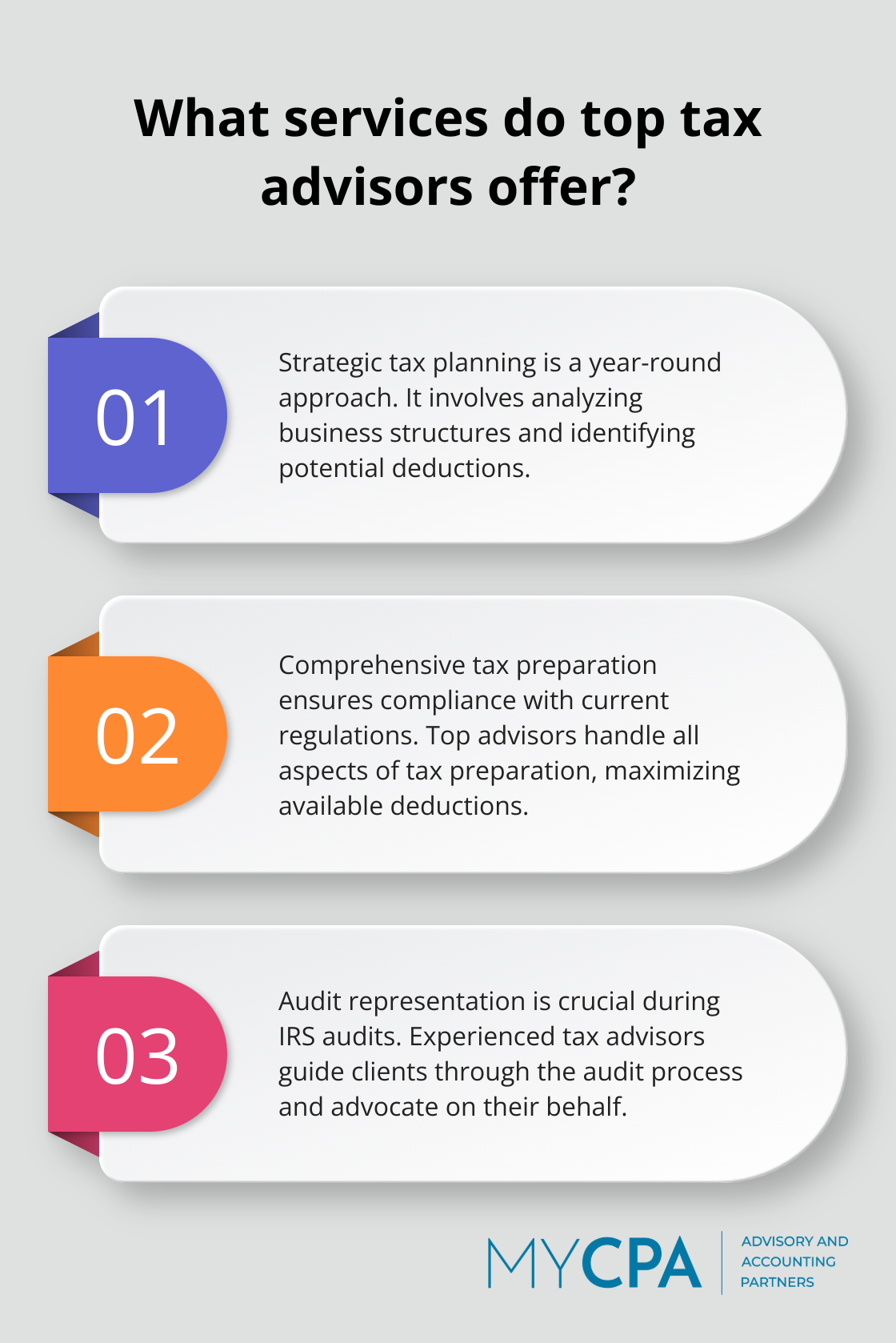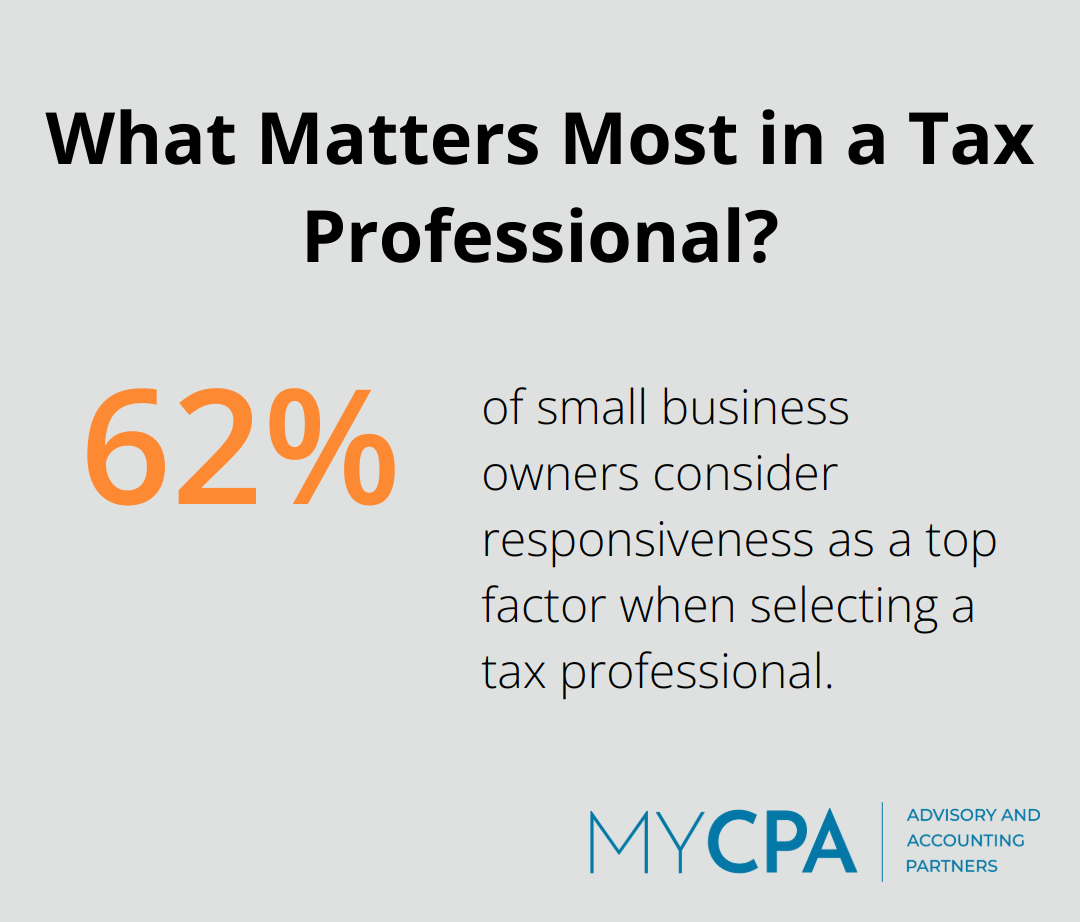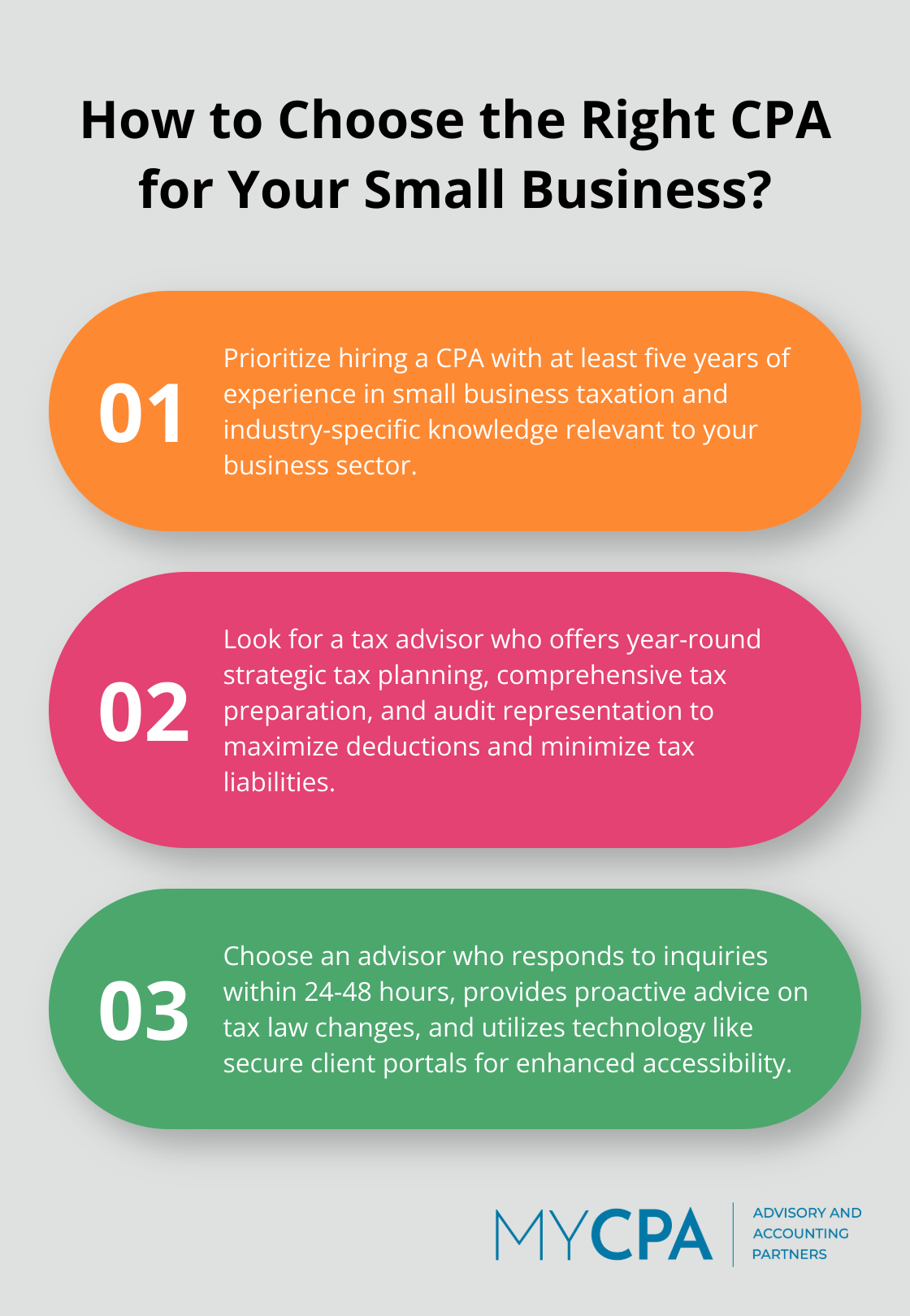
Selecting the right tax advisor is a critical decision for small business owners. At My CPA Advisory and Accounting Partners, we understand the complexities of small business tax advisory and its impact on your company’s financial health.
A skilled tax professional can help you navigate complex regulations, maximize deductions, and plan for future growth. This guide will walk you through the key factors to consider when choosing the best tax advisor for your small business.
Choosing a small business tax advisor requires careful consideration of qualifications and expertise. The right professional can significantly impact your company’s financial health and tax strategy.
A Certified Public Accountant (CPA) designation indicates a high level of expertise. CPAs undergo intensive training and must pass a comprehensive exam with a minimum score of 75 on each section. This underscores the difficulty and prestige of this credential.
Your advisor should specialize in small business taxation. This specialization ensures a deep understanding of the unique challenges and opportunities that small businesses face. Services offered by CAS firms include accounting and bookkeeping, payroll management, and outsourced CFO services like cash flow forecasting. Ask potential advisors about their client base – ideally, a significant portion should consist of small businesses similar to yours.
Experience in the field proves invaluable. An experienced advisor has likely encountered a wide range of tax situations and can apply that knowledge to your benefit. The National Association of Tax Professionals recommends looking for advisors with at least five years of experience in small business taxation.
Tax laws change frequently. Your advisor must commit to ongoing education to stay current with these changes. Ask about their recent training or certifications. Many professional organizations (such as the AICPA) require members to complete a certain number of continuing education hours annually.
An advisor with knowledge of your specific industry can provide more targeted advice. They will understand the unique tax implications and opportunities within your sector. This expertise can lead to more effective tax planning and potentially greater savings.

The right tax advisor is an investment in your business’s future. Take time to verify credentials, inquire about specializations, and assess experience levels. A well-qualified advisor can help you navigate complex tax landscapes, potentially saving you money and preventing costly mistakes. As you consider these qualifications, let’s explore the range of services that top tax advisors offer to support your small business.
Top tax advisors provide a comprehensive suite of services to support small businesses throughout the year. These services extend far beyond basic tax preparation, offering valuable support for financial decision-making and long-term business success.
Effective tax planning requires a year-round approach. Top advisors analyze business structures, identify potential deductions, and forecast future tax implications. This proactive strategy helps businesses minimize tax liabilities while maximizing financial opportunities. Small business tax planning strategies can help you avoid overpayment and save money when filing your business taxes.
Professional tax preparation saves time and reduces errors for small business owners. Top advisors handle all aspects of tax preparation, ensuring compliance with current regulations and maximizing available deductions.
In the event of an IRS audit, knowledgeable representation proves invaluable. Expert representation can help protect your interests during a tax audit. Experienced tax advisors guide clients through the audit process and advocate on their behalf.
Tax advisors serve as financial partners, offering guidance on business decisions with tax implications. This might include advice on equipment purchases, hiring decisions, or expansion plans.
Top tax advisors often specialize in specific industries, providing tailored advice and strategies. This industry-specific knowledge allows them to identify unique tax opportunities and challenges within a particular sector. For example, a tax advisor specializing in real estate will understand the intricacies of depreciation schedules and 1031 exchanges (which can significantly impact a real estate investor’s tax liability).

The range of services offered by top tax advisors demonstrates their value as year-round partners in a business’s financial success. These comprehensive accounting services provide small business owners with the tools and expertise needed to navigate complex tax landscapes and make informed financial decisions. As we explore the qualities of an exceptional tax advisor, let’s consider how communication and accessibility play a vital role in this professional relationship.
Tax laws are complex, but your advisor should explain them in understandable terms. A study suggests that accountants have lost relevance as advisors to small and medium-sized businesses, or have never had much relevance. Your advisor should break down intricate tax issues into digestible information, enabling you to make informed decisions for your business.
Your tax advisor should respond promptly to your inquiries. A survey by the National Small Business Association revealed that 62% of small business owners consider responsiveness as a top factor when selecting a tax professional. Try to find an advisor who responds to emails or calls within 24-48 hours, especially during critical periods (such as tax season or financial year-end).
Tax planning is not limited to a single annual event. Look for an advisor who offers availability throughout the year. The AICPA has made recommendations for practitioners regarding issues that have arisen around postponed tax due dates. This ongoing relationship allows for proactive planning and timely adjustments to your tax strategy.
A great tax advisor doesn’t wait for you to ask questions. They should proactively inform you about tax law changes, potential savings opportunities, and upcoming deadlines. For example, when significant tax legislation is passed (like the Tax Cuts and Jobs Act of 2017), your advisor should reach out to explain its impact on your small business.
Modern tax advisors often use technology to enhance accessibility. This may include secure client portals for document sharing, video conferencing for remote meetings, or mobile apps for quick communication. Ask potential advisors about their technological capabilities to ensure they align with your preferences and needs.

Selecting the right tax advisor for your small business impacts your financial success significantly. A great tax professional explains complex concepts clearly, responds promptly to inquiries, and provides year-round support. They should offer proactive advice and use technology to enhance accessibility.

The ideal advisor understands your industry, aligns with your business goals, and communicates effectively. A qualified tax professional helps you navigate complex regulations, maximize deductions, and make informed financial decisions that support your business growth. These long-term benefits make choosing the right advisor a worthwhile investment.
At My CPA Advisory and Accounting Partners, we specialize in small business tax advisory. Our experienced professionals provide personalized, proactive support to help you achieve your financial goals. We understand the unique challenges small business owners face and strive to be your trusted partner in financial success.








Privacy Policy | Terms & Conditions | Powered by Cajabra